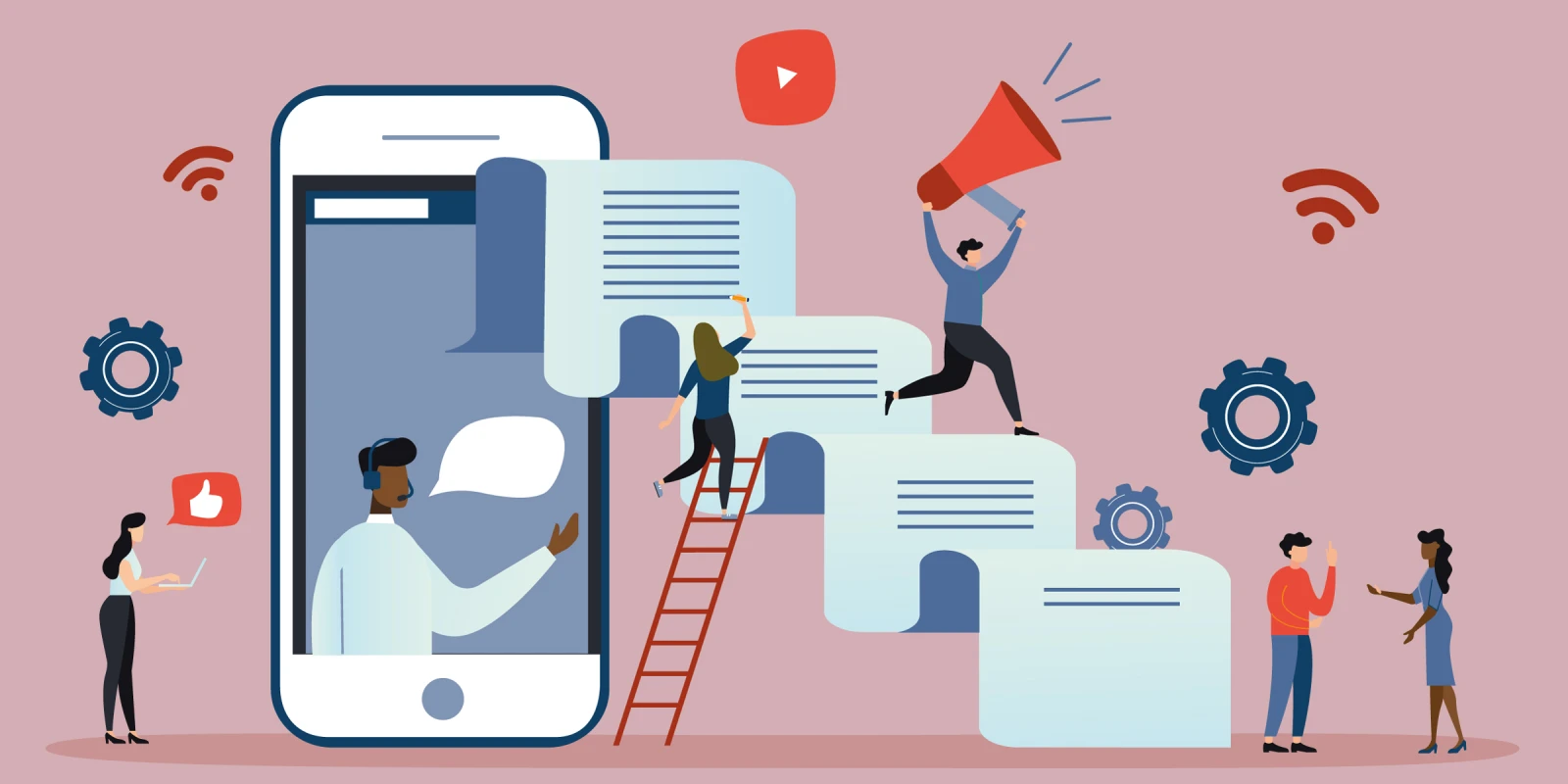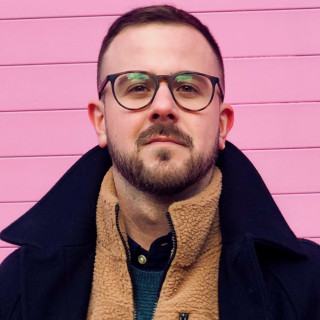The continued rise in popularity and usage of social media extends even to the medical field. Though a recent study in JAMA suggested that most physicians on social media choose not to use it as a public platform, there are many that do so to great effect. The landscape of clinician use of social media is broad, from those who use it to engage with other clinicians through Tweetorials, to those using hashtags on Twitter like #Tweetiatrician, #MedTwitter, and #CardioTwitter. And there are, of course, those who directly engage with the public on various platforms to combat misinformation. In an interview with Doximity, three physicians detailed how they are using social media and offered advice for all clinicians from their learnings.
Austin Chiang, MD, MPH, is a gastroenterologist, advanced endoscopist, and assistant professor at Jefferson Health in Philadelphia, as well as CMO for gastrointestinal business at Medtronic. He is also the founding president of the Association for Healthcare Social Media (AHSM), a professional society for health professional social media use. Dr. Chiang has a wide following on many social channels, but primarily uses TikTok to combat medical misinformation.
Danielle Jones, MD, is a board-certified ob/gyn and online educator who has amassed a following of more than two million across social platforms, with more than 271,000 followers on Instagram alone. She is known online as Mama Doctor Jones. On her social channels, she shares information about periods, pregnancy, and gynecologic health. She’s passionate about science education, autonomy, and patient-centered care.
Lisa Fitzpatrick, MD, is a CDC-trained medical epidemiologist, clinical professor, and professorial lecturer for the George Washington University School of Medicine and Milken Institute School of Public Health in Washington, DC. Dr. Fitzpatrick started Grapevine Health, a technology-enabled communication company that creates and delivers community-focused health information content. As an advocate for health literacy, Dr. Fitzpatrick created a YouTube video series called Dr. Lisa on the Street, in which she interacts with the community to explain health information and better understand their comprehension of topics ranging from the COVID-19 vaccine to heart disease.
The prospect of using social media as a clinician can be daunting. Dr. Chiang’s advice was to identify your purpose, target audience, and personal strengths (e.g., writing, being on camera, etc.). Next, he recommended that clinicians choose the platform that best matches their skill set. On Twitter, Dr. Chiang tends to engage primarily with other health care professionals. TikTok, on the other hand, is mainly nonmedical viewers, so he tailors his content accordingly. He stated, “My main goal is to educate and help people not only understand medical news and concepts, but also how to interpret medical information and encourage everyone to dig deeper beyond the headlines.” Before beginning to use social media, he suggested clinicians review their employer’s social media policies and then create content that fits within those guardrails.
Dr. Jones agreed that TikTok is good for reaching a younger audience and having fun. Though she uses several platforms, YouTube is where she feels she thrives. She described her YouTube videos as, “a great exercise in expanding my creativity and really leaning into edutainment.” Dr. Jones stressed that when starting out, clinicians shouldn’t expect people to follow them right away. “You have to create valuable content and you have to do it consistently,” she said. “Keep showing up. Keep creating.” To become familiar with a community or platform, she suggests learning from folks who aren’t in the medical field. “Join the community and learn what people are doing there, how they interact, why they show up.”
Dr. Fitzpatrick expressed that her use of social media on all platforms increased exponentially during the pandemic and that she believes it’s become a physician’s responsibility to be on social media. And she’s not alone: A recent Sermo survey showed that 81% of physicians believe that social media health training should be included in medical school curriculums. The Sermo survey also found that 51% of physicians think that social media made it more difficult to treat patients during the pandemic as misinformation was being spread across the internet.
Fitzpatrick shared that there was a “need for credible voices to address misinformation and explain what was happening.” While she emphasized the importance of using social media however one can, her advice, like Dr. Jones, was to have a consistent presence, especially when trying to combat misinformation. Dr. Fitzpatrick also suggested making sure that one has the bandwidth, infrastructure, and research support to properly and quickly respond on the social channels that one chooses to utilize. As far as soldiering on, Dr. Fitzpatrick shared that hearing from people who have been helped by the information is “encouraging and inspiring.” She recalled a time when she read a person’s Facebook post crediting one of her YouTube videos as the support they needed to feel comfortable getting the COVID-19 vaccine.
Dr. Jones had similar experiences of positive feedback. She stated, “I get emails all the time saying [a patient] feels comfortable going to a gynecologist for the first time in years, because I empowered them to take control of their health or stand up for themselves. It feels good to know someone got a pap smear or HPV or COVID vaccine because of something I shared.”
Though Dr. Fitzpatrick’s use of social media has increased during the pandemic, all three doctors have been using social media for years. Dr. Chiang remarked, “In the early 2010s, I recognized during my medical training that some of my patients were coming into the hospital after making medical decisions based on what they were learning off the internet or on TV.” After spending some time as part of the ABC News Medical Unit, he realized that there was an opportunity to use social media to foster evidence-based conversations online.
Dr. Chiang shared that certain medical topics gain a lot of media attention, while other less-funded aspects of medicine often do not receive the coverage they deserve. On TikTok, he has been able to highlight weight loss endoscopy, a less visible area in his specialty. For endoscopic bariatric therapies, he has made several TikTok videos that have garnered millions of views, through which he has made referrals to colleagues across the country.
Social media has been beneficial for these clinicians and for their followers, but it hasn’t come without some hard moments. Dr. Fitzpatrick recounted that a few of her YouTube videos have been “destroyed by anti-vaxxers and bots.” Some of her early videos on vaccines received thousands more negative, ill-informed comments than positive ones, so she had to turn off commenting. “I believe in allowing people to have a voice, but because I don’t have the bandwidth to respond to all the misinformation and sensationalism, it seemed less harmful to turn them off,” she said. “I still wrestle with finding the right balance here. It takes resources.”
Dr. Jones shared that in order to combat misinformation, “anticipate what they will say and combat it before it's mainstream. Most data shows that people are more likely to believe whatever they heard first, so if you get a little inkling of something that may start becoming a bigger lie, go ahead and squash it publicly. Use science, make it easy to understand, and talk to people as your equal. Show them you care.”
Dr. Chiang has likewise received negative comments on content around vaccines, and so he chooses when to engage. He also discovered that some of his content around calories and food can be triggering for some individuals. He said this learning has given him “greater insight and helped me improve my health messaging.”
With the younger generation more likely to consume news via social media, these doctors are adamant about utilizing these channels to reach younger individuals.
“It’s important to leverage the incredible reach and connectivity social media has, while curbing viral misinformation, which has been so easily propagated in the past,” said Dr. Chiang.
Dr. Fitzpatrick agreed: “This is where and how our patients and the community are obtaining information, and it will only grow. ... Those of us who are serious about improving health literacy must get on board. Misinformation thrives due to the absence of our voices.”
How has social media affected your relationships with patients or colleagues? Share in the comments.
What would you like to read about? Share your suggestions here.
Image by Viktoria Kurpas / Shutterstock







